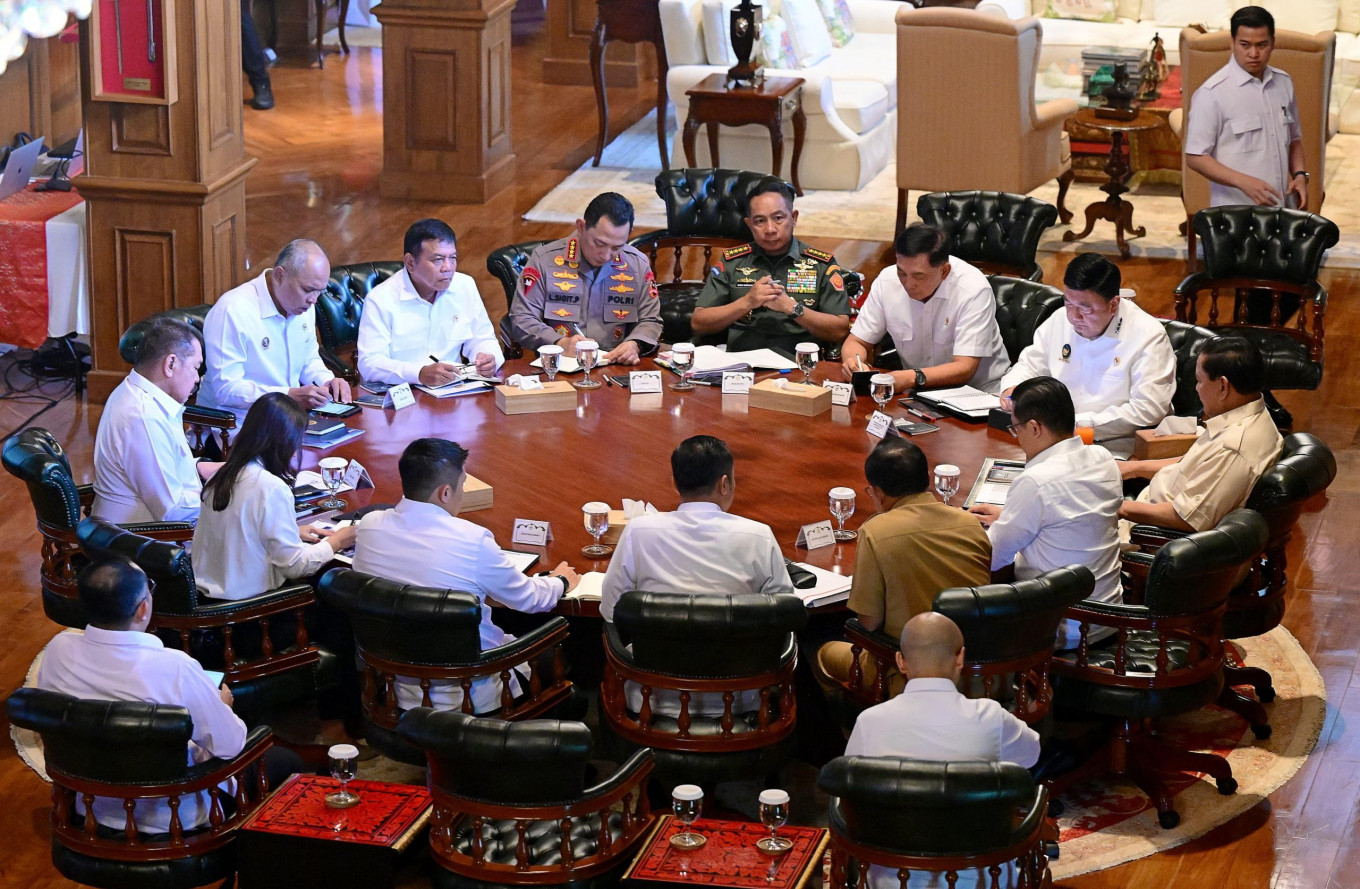Popular Reads
Top Results
Can't find what you're looking for?
View all search resultsPopular Reads
Top Results
Can't find what you're looking for?
View all search resultsDual jobs, more problems
About 30 of 55 deputy ministers in Prabowo's cabinet have received second jobs as commissioners in state-owned enterprises (SOEs).
Change text size
Gift Premium Articles
to Anyone
F
rom the early months of his administration, it has been apparent that President Prabowo Subianto has taken a different approach to build his administration than his predecessor Joko “Jokowi” Widodo.
While the President has kept many of Jokowi’s ministers and programs, he is not a keen apprentice that is willing to keep all the former president’s legacies.
Among the things that Prabowo has changed is the patronage system that Jokowi developed during a decade in office in which he employed frequent reshuffles to ensure his ministers’ compliance and sealed alliances with supporting political parties.
Prabowo has created an even larger cabinet with more than 100 ministers and deputy ministers. But he has been reluctant to use the reshuffle as a carrot-and-stick system in his cabinet.
Instead, it may be that the President has given too many carrots and not enough sticks.
Eight months on, none of the programs in his administration have shown major results. But unlike Jokowi, who might have chosen to review and axe underperforming ministers, Prabowo has decided to give more responsibility and higher salaries to his aides.
About 30 of the 55 deputy ministers in his cabinet have received second jobs as commissioners in state-owned enterprises (SOEs). The economic slowdown and global trade war triggered by United States President Donald Trump’s controversial tariffs have led to more criticism of the government.
Law experts have pointed out how the appointments have breached Law No. 39/2008 on State Ministry, which forbids ministers and deputy ministers from holding dual positions. The ban was reaffirmed with a Constitutional Court ruling in 2019.
The dual roles have raised questions about whether government officials can perform their jobs well if they are juggling their time between their positions in ministries and SOEs.
There are also concerns about a conflict of interest for deputy ministers as they will take roles as regulators in the government while also serving as supervisors within SOEs. Many doubt that they will perform well as they might sacrifice their performance to supervise the SOEs. At worst, the SOEs will not run independently and will bow to the demands of the government.
During the Jokowi administration, the major criticism was that he was awarding commissioner positions as rewards to his loyalists. This has also been attributed to the collapsing of SOEs, especially those in the infrastructure sector as they were also forced to implement Jokowi’s programs.
It seems the trend, albeit with a different approach, will remain. There is also a chance that it may be worse for the SOEs and ministries as the President has shown less interest in disciplining his underperforming aides.
Without a clear merit system with effective rewards and punishments, there is little hope that Prabowo will get very far with his programs.
In a book titled Why Nations Fail, political economists Daron Acemoglu and James A. Robinson said countries head toward failure because leaders create extractive institutions that concentrate power and wealth in a group of elites at the expense of all citizens.
By concentrating great responsibilities on a few people, it looks like Prabowo is on his way to creating extractive institutions. Without clear performance reviews and strong law enforcement, the President may unintentionally lead the country to failure.
Before his inauguration, Dahnil Azhar Simanjuntak, one of Prabowo’s closest aides, said the President looked for loyalty in his ministers. Double jobs, and therefore double salaries, may ensure this loyalty.
But there is no guarantee that these officials, who are paid by taxpayers, will be loyal to the people.











